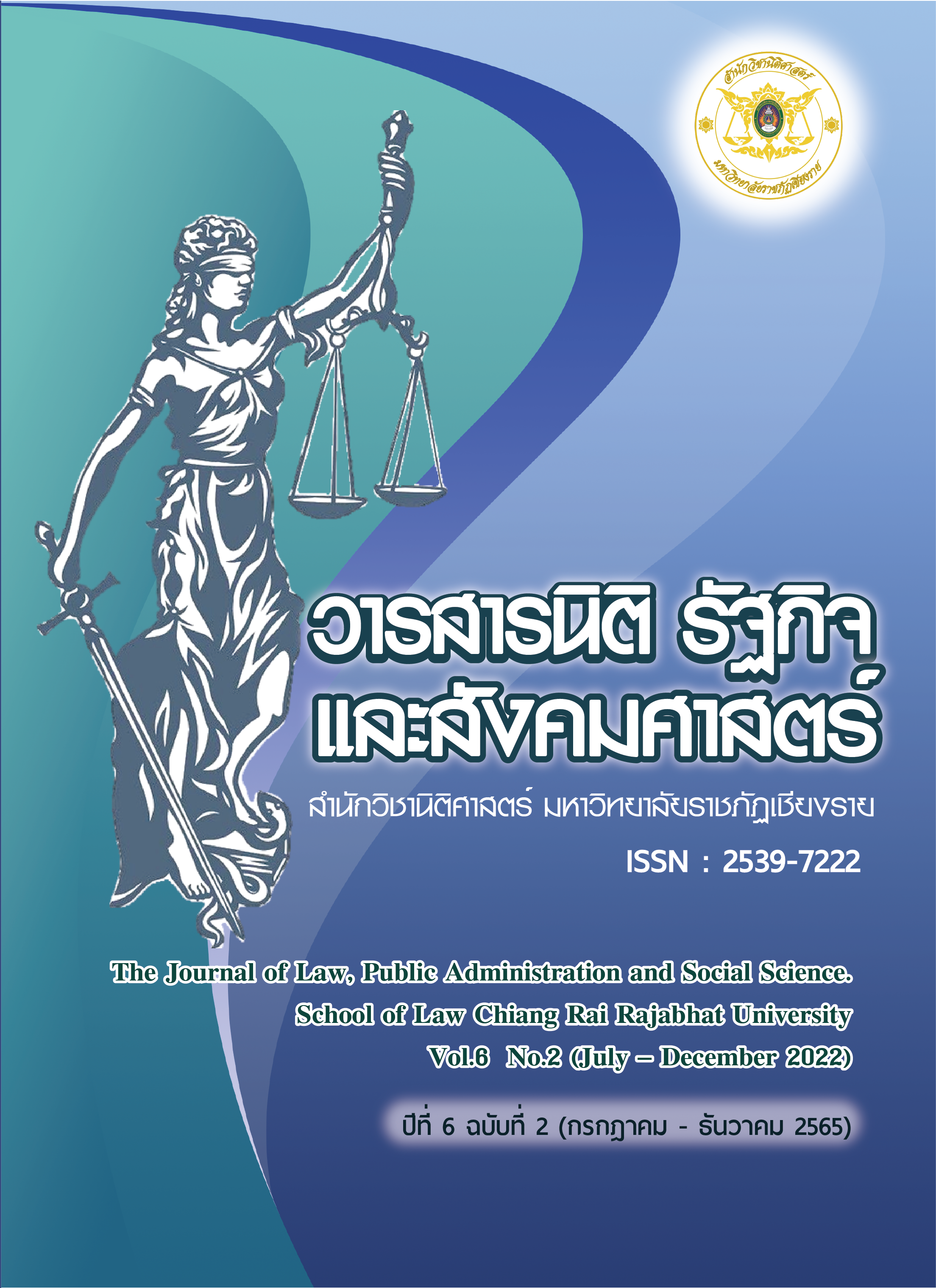ProblemProblems of the Democratic Legitimacy of Constitutional Court under the Constitution of the Kingdom of Thailand 2017s of the Democratic Legitimacy of Constitutional Court under the Constitution of the Kingdom of Thailand 2017
Main Article Content
Abstract
The purpose of this article was to study the democratic legitimacy of the Constitutional Court of the Kingdom of Thailand under the Constitution of the Kingdom of Thailand 2017. Democratic legitimacy was theoretically examined, focusing on the issue of high-level state organization along with related constitutional court establishment theory. We can know the level of democratic legitimacy of constitutional court by considering the selection of constitutional judges and then we will know that “Is the establishment of constitutional court according to democratic principles” by measuring the constitutional court’s democratic legitimacy level.
Results were that in Thailand, selecting constitutional judges for the Constitutional Court under The Constitution is done by high-level state bodies and special bodies established or authorized by law through a low level of constitutional court democratic legitimacy. for this reason, the Constitutional Court under The Constitution has shown insufficient democratic legitimacy as a constitutionality control organization organizationally and individually reflecting consistency between the establishment of the constitutional court and the principle of democracy because the selection procedure for constitutional judges under The Constitution is operated to uses organizational power to select judges by low level of organizational and individual democratic legitimacy states body. To resolve this issue, a new constitutional amendment for selecting constitutional judges should be passed to enhance organizational and individual democratic legitimacy levels of attributing power to select constitutional judges for enhancing Constitutional Court of the Kingdom of Thailand democratic legitimacy levels.
Article Details
References
บรรเจิด สิงคะเนติ. ความรู้ทั่วไปเกี่ยวกับศาลรัฐธรรมนูญ. พิมพ์ครั้งที่ 2. กรุงเทพมหานคร: วิญญูชน, 2560.
วรเจตน์ ภาคีรัตน์. คําสอนว่าด้วยรัฐและหลักกฎหมายมหาชน. พิมพ์ครั้งที่ 3. กรุงเทพมหานคร: อ่าน, 2564.
Alec Stone Sweet. Governing with Judges : Constitutional Politics in Europe. New York: Oxford University Press, 2010.
Christoph Grabenwarter. “Separation of Powers and the Independence of Constitutional Courts and Equivalent Bodies.” 2nd Congress of the World Conference on Constitutional Justice, Rio de Janeiro, 2011. https://www.venice.coe.int/WCCJ/Rio/Papers/AUT_Grabenwarter_keynotespeech.pdf?fbclid=Iw AR0HQdiOFlHYAaGy608MFa2sjWN_cjnIKqQRzFrChG8tQH6BSKGCl_nNEi. accessed July 12, 2021.
Conrado Hübner Mendes. Constitutional Courts and Deliberative Democracy. New York: Oxford University Press, 2013.
Duncan Black. The Theory of Committees and Elections. Cambridge: Cambridge University Press, 1958.
Frank Nullmeier and Tanja Pritzlaff. “The Great Chain of Legitimacy: Justifying Transnational Democracy.” 2010. https://www.econstor.eu/handle/10419/36686, accessed March 1, 2020.
Henning Glaser. “Constitutional Jurisprudence – On the Function, Impacts, and Challenges of Constitutional Courts.” in Constitutional Jurisprudence: Function, Impact and Challenges, edited by Henning Glaser, 35. Baden-Baden: Nomos, 2016.
Or Bassok. “The Schmitelsen Court: The Question of Legitimacy.” German Law Journal 21 (February 10, 2020): 126-143.
Rodney Barker. Political Legitimacy and the State. New York: Oxford University Press, 1990.


